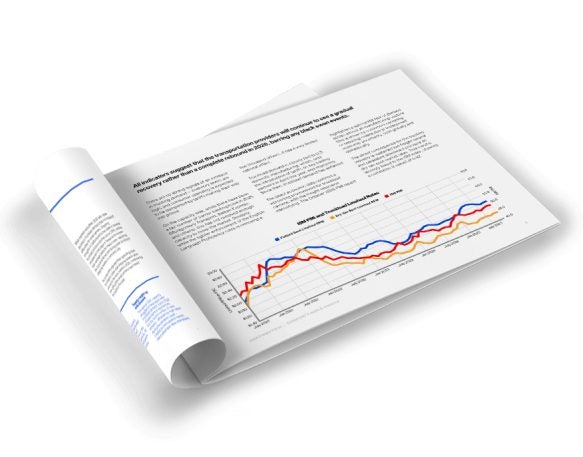In the fast-paced world of shipping and logistics, freight accessorial charges are a critical component that significantly affects the overall cost structure of freight transportation. These are supplementary fees, distinct from primary freight rates, calculated to cover extra services or accommodations furnished by carriers to facilitate the seamless transit of goods from origin to destination.
Understanding the intricacies of freight accessorial charges is necessary, as these can considerably influence your overall shipping expenditures. They encompass a broad range of additional costs incurred due to specific requirements or unforeseen circumstances arising during the transportation process. These may include charges for special handling, extended waiting times, use of specialized equipment, or additional labor, to name a few.
Shipping accessorial charges play a vital role in helping shippers and carriers alike foster transparency, establish clear expectations, and ultimately pave the way for a more streamlined, efficient, and cost-effective shipping process. Armed with the right knowledge, stakeholders are better positioned to navigate the complexities of the shipping industry, mitigate potential pitfalls, and optimize their operations for maximum efficiency and profitability. In our freight accessorial fee guide, we’ll explore the common types of accessorial charges and strategies to effectively manage and negotiate them.
Common types of freight accessorial charges
Navigating the realm of shipping can often feel like uncharted territory, especially when confronted with a wide range of hidden shipping charges that seem to come out of nowhere. Here’s a breakdown of some common freight fees you might encounter:
Detention charges: Detention fees come into play when a driver is held up at the pickup or delivery location for longer than the predetermined time. A driver’s time is valuable, and any delays can disrupt the entire transportation schedule, leading to these additional charges.
Lumper: A lumper fee is charged when a shipper employs third-party workers to load or unload the cargo. This fee is typically used in the food industry where shipments require special handling and sorting before reaching their final destination.
Residential delivery fees: Delivering goods to residential areas requires extra time and effort due to navigating through smaller roads and residential streets. This additional service is often reflected in the form of residential delivery fees.
Inside delivery charges: This fee is applicable when freight needs to be delivered inside a building or specific location, rather than just at the curbside. It covers the extra effort needed to bring the goods to the exact spot required by the recipient.
Redelivery fees: If the initial delivery attempt is unsuccessful, carriers may impose redelivery fees to cover the cost of making another delivery attempt.
Liftgate fees: Liftgate fees are applied when a truck without a liftgate is used to deliver goods that require a liftgate for loading or unloading. This specialized equipment adds convenience and is essential for heavy or oversized freight.
Truck Ordered and Not Used (TONU): In situations where a truck is ordered but not utilized, carriers may charge a TONU fee to compensate for the loss of potential earnings during that time.
Understanding these common shipping fees is the first step in managing your expenses effectively. With this knowledge, you can anticipate potential charges and budget accordingly, ensuring a smoother shipping experience.
Reasons for freight accessorial charges
Shipping is a complex process that often requires extra services and accommodations to ensure that goods are delivered in a timely and efficient manner. Accessorial charges are a way for carriers to be compensated for these additional efforts, ensuring that they can continue to provide a high level of service to their customers. Let’s delve deeper into why these fees exist and the situations that trigger them.
Compensation for extra services: Accessorial charges cover a range of additional services that go beyond standard freight transportation. This can include loading and unloading cargo, providing specialized equipment like liftgates, or even waiting time at a pickup or delivery location. Each of these services requires extra resources, and accessorial charges help to cover those costs.
Addressing unique shipping situations: Shipping is not always a straightforward process. There are often unique situations and circumstances that require special attention or accommodations. For example, delivering goods to a residential area may require smaller vehicles and additional time to navigate through residential streets. Accessorial charges ensure that carriers are compensated for the extra effort required in these situations.
Mitigating unforeseen delays and issues: The shipping process is subject to a range of unforeseen delays and issues that can arise at any time. Whether it’s traffic, weather, or other obstacles, carriers need to be able to adapt and respond to these challenges. Accessorial charges provide carriers with the flexibility to address these issues without sacrificing the quality of their service.
Strategies to anticipate and manage accessorial charges
Effectively managing and anticipating negative accessorial charges in your shipping operations is essential to minimize unexpected expenses and maintain a streamlined supply chain. By proactively addressing potential accessorial issues, you can ensure a more cost-effective and efficient shipping process. Here are some strategies to help you plan for and handle freight accessorial charges:
- Understand Your Shipping Facilities: Familiarize yourself with your shipping facilities, including loading and unloading procedures, equipment availability, and any potential constraints that could lead to freight accessorial charges.
- Know Your Products: Thoroughly understand the nature of the products you are shipping, as different goods may require specific handling or storage conditions. This knowledge can help you prevent accessorial fees related to mishandling or damage.
- Give A Detailed Bill of Lading (BOL): Provide comprehensive information on your Bill of Lading (BOL), including any special handling instructions or legal requirements that carriers need to be aware of, such as hazardous materials or temperature-sensitive cargo.
- Have Your NMFC Number: Know your National Motor Freight Classification (NMFC) number for less than truckload (LTL) shipments. This knowledge can help you accurately classify your shipments and estimate associated costs.
- Additional Handling or Equipment Requirements: Communicate any additional handling or equipment considerations, such as the need for liftgates, pallet jacks, or forklifts, in advance to avoid surprise accessorial charges.
- Get Accurate Weights and Measurements: Ensure that the weights and measurements of your shipments are accurate and within legal limits. Properly distributing the load in the trailer can prevent the need for costly reworking of shipments.
By implementing these strategies and maintaining a proactive approach to managing freight accessorial charges, you can optimize your shipping operations and reduce unexpected costs, contributing to a more efficient and cost-effective supply chain.
Navigating common shipping fees with DAT
Navigating the intricacies of shipping costs can be overwhelming, but DAT is here to help. RateView Analytics from DAT iQ offers insights designed to help shippers like you navigate the volatile freight market and make informed decisions. Let’s explore some of the benefits that RateView Analytics provides:
- Navigate unpredictable freight markets: The freight market is known for its fluctuations, with rates often changing due to various factors such as seasonality, fuel costs, and economic conditions. RateView Analytics empowers shippers to stay informed with the latest truckload rates, enabling them to make strategic decisions and manage their transportation costs effectively. By understanding market trends and rate fluctuations, shippers can better anticipate changes and adjust their shipping strategies accordingly.
- Enhance transparency during carrier negotiations: Negotiating rates with carriers can be a complex process, with many factors influencing the final agreement. RateView Analytics adds transparency to carrier negotiations by aligning rates with current market trends. This valuable information strengthens shippers’ bargaining positions, ensuring that they receive fair and competitive rates. By having access to real-time rate data, shippers can confidently negotiate with carriers, ultimately strengthening their budget and bottom line.
- Improve routing guides: Routing guides are essential tools that help shippers optimize their transportation network and ensure that goods are delivered efficiently. However, routing guides can become outdated or ineffective over time, leading to higher shipping costs and delays. RateView Analytics enables shippers to source new carrier capacity and repair routing guides for problematic or new lanes in their network. By leveraging DAT’s extensive database of carrier information, shippers can identify reliable carriers that meet their specific needs, ensuring that their routing guides are up-to-date and effective.
- Gain insights on new lanes: Expanding your shipping network is a great way to reach new customers and grow your business. However, entering new lanes can be challenging without the right data. RateView Analytics from DAT iQ provides shippers with 13-month pricing histories and optional forecasting tools, making it easier to assess the viability of new lanes and make informed decisions. With access to accurate and up-to-date rate information, shippers can confidently add new lanes to their network and explore new market opportunities.
RateView Analytics is an invaluable tool for shippers looking to navigate the volatile freight market, gain insights on new lanes, improve carrier negotiations, and more. With access to accurate and real-time rate information, shippers can make informed decisions that positively impact their bottom line and strengthen their competitive edge in the market.
Navigate freight accessorial charges with confidence.
By understanding freight accessorial charges, you can better navigate the complex world of shipping and take control of your supply chain costs. DAT is here to help you do just that, with our RateView Analytics solution from DAT iQ. With RateView Analytics, you can get an accurate view of all shipping costs, including accessorial charges, and make informed decisions to optimize your supply chain.
Learn more about how DAT RateView can help you navigate the complexities of shipping costs and take control of your supply chain.




